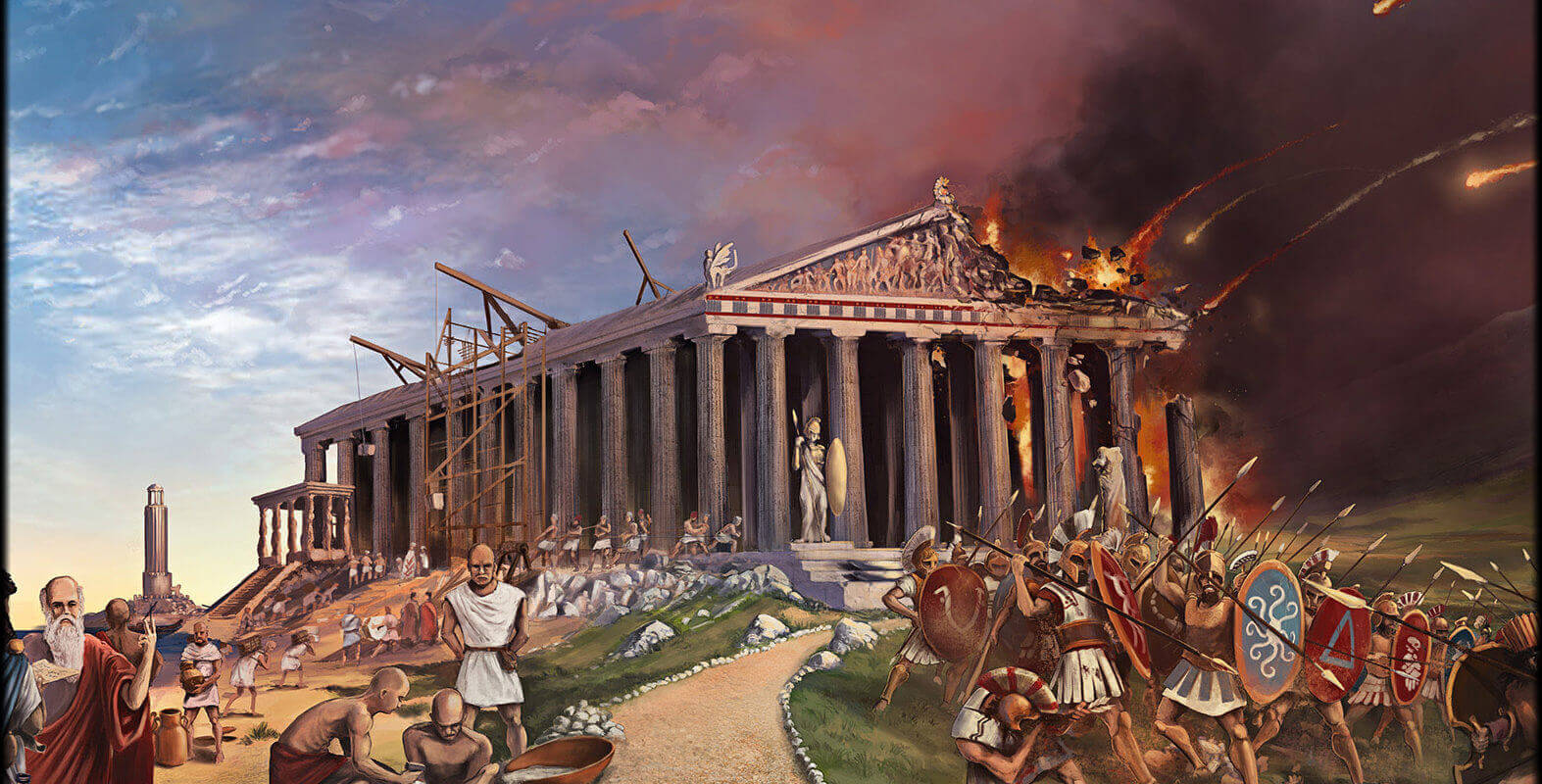Part of the appeal of a historical strategy or war-game is the idea of “can I do it better?” Historical hindsight teaches you that you shouldn’t try and assault the Union Army at the Devils Den, that you shouldn’t invade Russia in the Winter, or even get involved in a land-war in Asia. Famously Close Combat: A Bridge too Far had a picture of Field Marshall Montgomery saying “Yeah like you could do any better?”
However, the challenge gets ramped up even further when you are asked to match wits with one of history’s great Kings and generals. Before Alexander was able to conquer his way across much of the ancient world, his father Philip the One-Eyed, King of Macedonia, built an army that would be foundation of Alexander’s conquests.
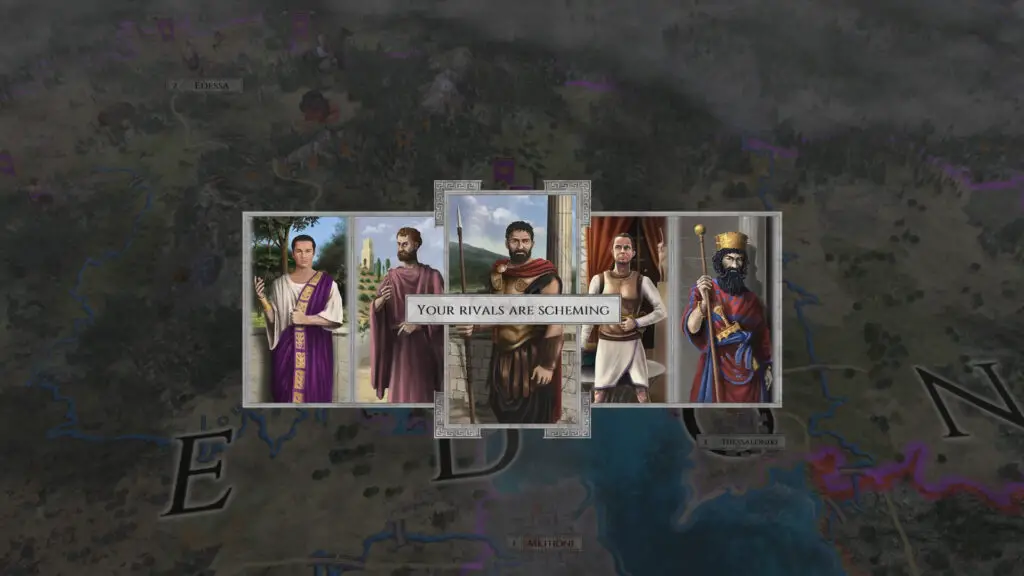
Imperiums Greek Wars drops you into this war in its main scenario, putting you in the shoes of the Macedonian Kingdom and asking the tough questions of you of whether you can unite the Greek Kingdoms under your leadership or whether the Macedonian Kingdom will be reduced to a Greek or Persian back-water.
Imperiums is a turn-based strategy very much in the mould of the classic Civilization. In some ways, it shares many features with the venerable classic. You’ll find combat units but only one per space. You’ll have cities that expand their population size, which increases their output but also their requirements for happiness and order. These cities are also the workshops where new units are built, you’ll also construct non-combat units like settlers to create rich farm-land and put in roads to connect your growing Empire. These settlers can also convert themselves into new cities, expanding your Empire.
The world you are dropped into is not a simple place, with dozens of polities out to fight it out for survival and dominance. These range from tiny city-states all the way to vast superpowers like the Persian Empire. Sparta, Athens, Corinth, and Macedonia are all here and these nations are not balanced. If you want a huge challenge you can try to take a much smaller and weaker nation through the game.
The default scenario sees you play as Macedonia, contesting with various northern nations near the top of the map as you build a powerhouse Empire that can overcome the traditional but now waning powers of Athens and Sparta to the south. Combined arms will be required as land units will need cavalry, infantry and ships to win the day and fighting is carried out between individual units with multiple factors such as training, quality, leadership and terrain all part of the overall calculation. Casualties are tracked by unit so Civ’s abstraction of strength points isn’t to be found here.
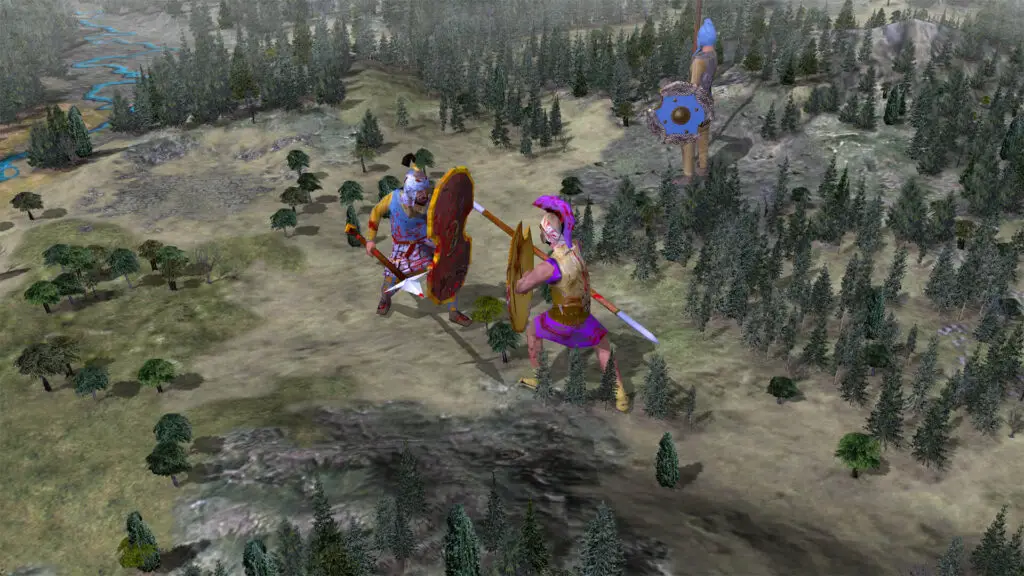
Battles can be quite slow, especially against a rival with a similar power as your units slowly wear each other down and you grind down their resistance, looking for a unit that will collapse and give you an opportunity to score a major victory. Sieges play out in a similar fashion, with your units “poking” at the city tile with their spears until the city gives in, allowing you to conquer or pillage as your desires take you.
Diplomacy is tricky, there are a lot of options here and lots of states to form ties with your neighbors, forming pacts and alliances as well as forming lucrative trading alliances. The diplomacy element is a bit rough and ready and the AI can be a bit gullible at times but this is far from a game-breaking situation. If you’re a powerful state, you’ll find yourself able to bend lesser states to your will but you may also see opposing coalitions spring up against you.
The game manages to successfully marry the city-building and resource exploitation of Civ and other empire building games with a deeper combat and war system that puts a premium on both the composition of your army and logistics.
Units can be upgraded and trained in a variety of ways, allowing you to fine-tune your army composition and offers you a nice balancing act between well-drilled units and quickly raised armies whose quality may be a lower. Generals offer bonuses to their men too; this is a nice blend of the two arenas of wargame and 4X.
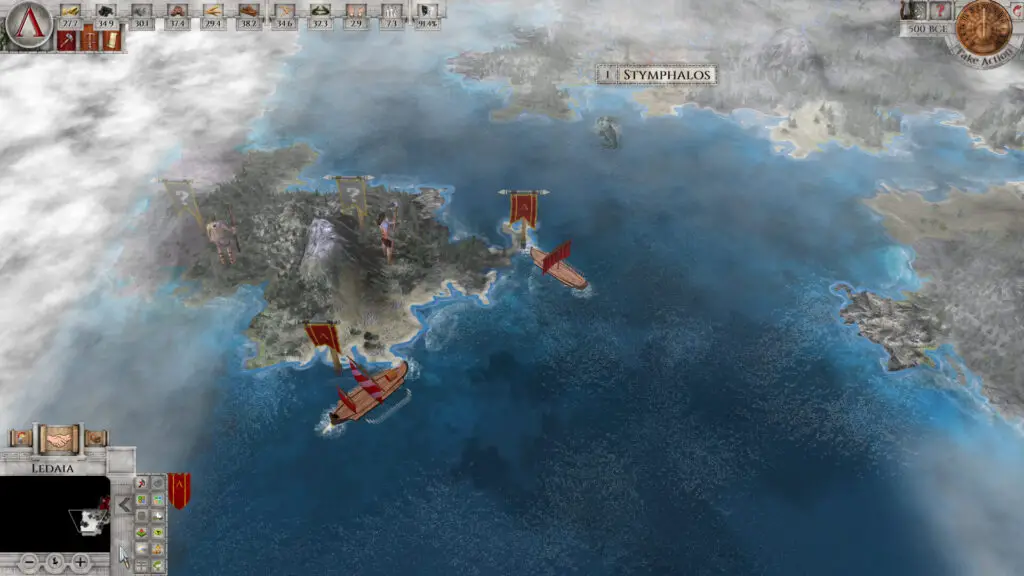
The game does have some issues though. The graphics could be better and cleaner, with some muddy textures and a map that often hides its information, meaning you have to hover over areas on the map to tell what is happening there, or click on a unit to get a feel for what its capabilities are. In contrast with the sleek style of Civ, this makes the game a little trickier to get to grips with.
The unit graphics could be better, though this is a fairly minor quibble. It’s not always obvious what a unit is or sometimes even whose side it is on without either hovering over it or clicking on it. Added to this is a somewhat clunky but usable UI which all add up to make getting into the game a much slower proposition than you might like.
With so many nations, the game also suffers from the same issue that Total War sometimes does where you can have a long wait until it’s your turn again, which does somewhat reduce enthusiasm and dampen that “one more turn” feeling that can make a good turn-based game so compelling.
Still, there are lots to recommend about the game. It’s deep and if you can get past its somewhat drab graphics and clunky UI, there’s a deep and satisfying game to play, set in one of the richest and most exciting periods in world history. Trying to follow in Philip’s footsteps is a huge challenge and even a hardened gamer will be hard-pressed to achieve all he did. The game has scaling difficulty and complexity levels, with elements of the game left out on lower difficulty levels. A player also has the option to leave out elements they do not wish to engage with, including the rather interesting if strange “mythic” elements.
This is also something of a sandbox game as you do not have to play as Macedon. Your options are pretty broad and a player can choose instead to play as Sparta or Athens and try to keep their hegemony on Greece going or take over as Persia and conquer the Hellenic states once and for all. There’s also a Peloponnesian scenario too if you want to refight the long and ultimately futile wars between Athens and Sparta.
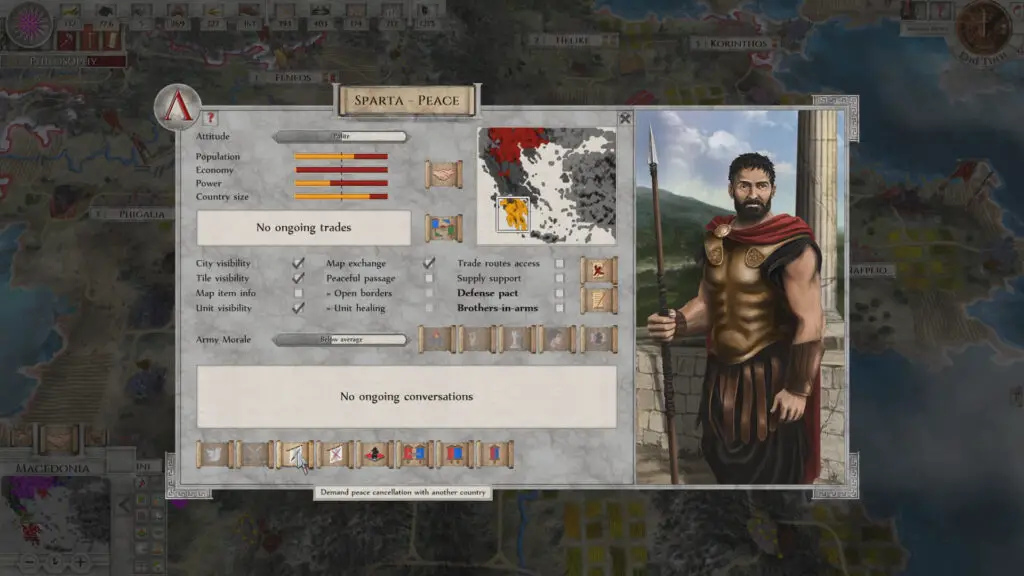
Another positive is the excellent support offered by the developers who have been quick to resolve bugs and hang ups and are strongly supportive of the game and its continued development. There are lots of examples in forums of people having issues and a member of the Dev team contacting them within a very short time frame to offer a fix.
I didn’t get chance to play multi-player but there is the usual dedicated lobby for multiplayer. Imperiums, despite its flaws, offers an exciting and interesting challenge. A bit more polish and some more user-friendly graphics and this game could have been a classic, which is a great sign for future releases!


